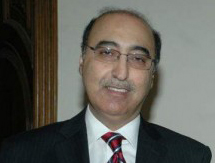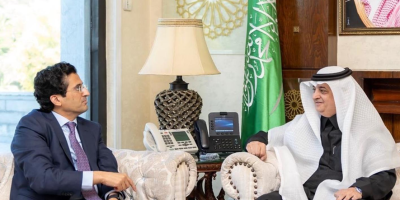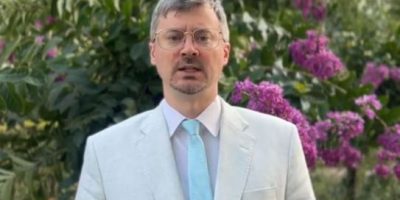War not a solution; no other way to address issues but peacefully: Basit

ISLAMABAD, 25 SEP, (DNA) – Amid war talks by India after Uri attack, Pakistan’s High Commissioner in New Delhi Abdul Basit on Sunday ruled out the notion of both countries going to war.
He said “I strongly believe Pakistan and India do not gain anything from creating hype. War is not a solution, war creates more problems.”
“We can perhaps afford not to talk to each other for some time, but addressing our many bilateral, regional and global challenges can only happen through dialogue”, the high commissioner said in an interview with Telegraph India, an Indian English daily.
He said, “I am not ready to give up on that. We should not allow war hysteria to dominate our narrative.”
He said investigation was yet going on to determine what really happened in Uri so it was important not to draw premature conclusions. “It is not helpful to jump the gun,” he remarked.
He said Pakistan had extended all out cooperation after Pathankot incident and things were moving in the right direction. Both the countries could prevent the situation from worsening, if the spirit was maintained.
“I am a diplomat and I would like diplomacy to win. I, for once, would not like to believe that bilateral diplomacy has exhausted itself,” Abdul Basit remarked recalling Prime Minister Nawaz Sharif’s remarks at UN General Assembly that Pakistan desired to have a normal, co-operative relationship with India and resolve all problems peacefully.
He said Pakistan believed that issues should be resolved only through peaceful means and there is no other way.
The high commissioner viewed that Pakistan and India were on right track till July 8 when Kashmiri freedom fighter Burhan Wani was killed by security forces in Indian Occupied Kashmir.
To a question, he categorically made it clear that Pakistan had nothing to do with the Uri attack as it was committed to not allowing its territory to be used for violence anywhere in the world.
He said problems in Indo-Pak ties did not begin with the Mumbai attack, Pathankot or Uri attacks, rather they fought three wars, besides a military conflict over Kargil.
But both countries agreed that there was a long-pending issue of Jammu and Kashmir, needing resolution. “Be it UN Security Council Resolutions or even the Simla Accord, both countries agreed on resolving this problem through dialogue”, he added.
“It is important to understand what keeps bedeviling our relationship and what keeps bringing mistrust between us.
We feel it is imperative not to shy away from addressing the Jammu and Kashmir dispute,” the high commissioner said.
He said terrorism was an important challenge for both countries that could be met more effectively if they co-operate rather than blame each other all the time.
He said diplomacy could not be conducted through verbosity. Diplomacy has to be conducted on the basis of sovereign equality and mutual respect and understanding, he added.
Responding to a question, Abdul Basit said Kashmir issue could not be brushed under the carpet as what was happening in Occupied Kashmir, in Srinagar and surrounding areas, manifested the seriousness of the problem.
“Pakistan is not asking for something that is unrealistic or unfair. Kashmir is the central problem between us. I am not saying other issues are not important, they are, but Kashmir we have to settle,” he remarked.
Mentioning various confidence-building measures between Pakistan and India, he said both countries should avoid entering a cul-de-sac.
“Once we get into a blind alley, it will be very tough getting out,” the envoy remarked.
Asked to comment on unconfirmed reports of Indian revenge of Uri attack by a covert cross-border strike on some camps, the high commissioner said he didn’t believe any such thing happened.
“Pakistan is capable of defending itself, but I wouldn’t like to think things will escalate to that impasse.”
The High Commissioner Basit said “the idea of having diplomatic engagement is to not allow those forces which want the two of us to resolve problems and usher in a new era of co-operation.”
“We have to transcend this process of one step forward, two steps back. But it requires two to tango,” he said. =DNA
Related News

Pakistan, Saudi Arabia Strengthen Energy, Minerals Cooperation
ISLAMABAD: JAN 30 /DNA/: Federal Minister for Petroleum, Mr. Ali Pervaiz Malik, met with H.E.Read More

SIAL welcomes Russian Ambassador
SIALKOT, JAN 28 (DNA): Sialkot International Airport (SIAL) on Wednesday hosted Russian Ambassador to PakistanRead More


Comments are Closed